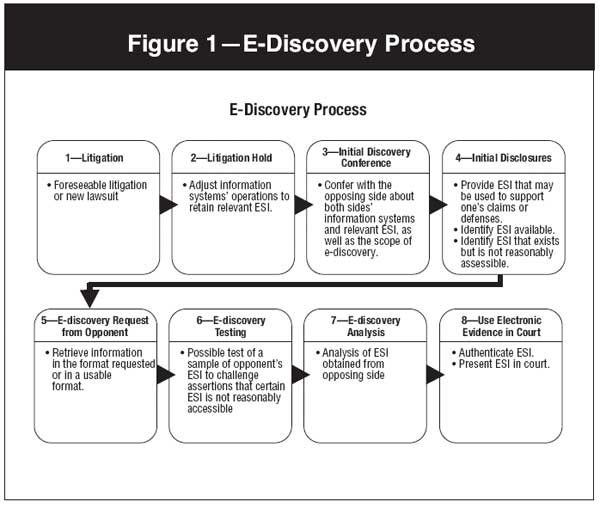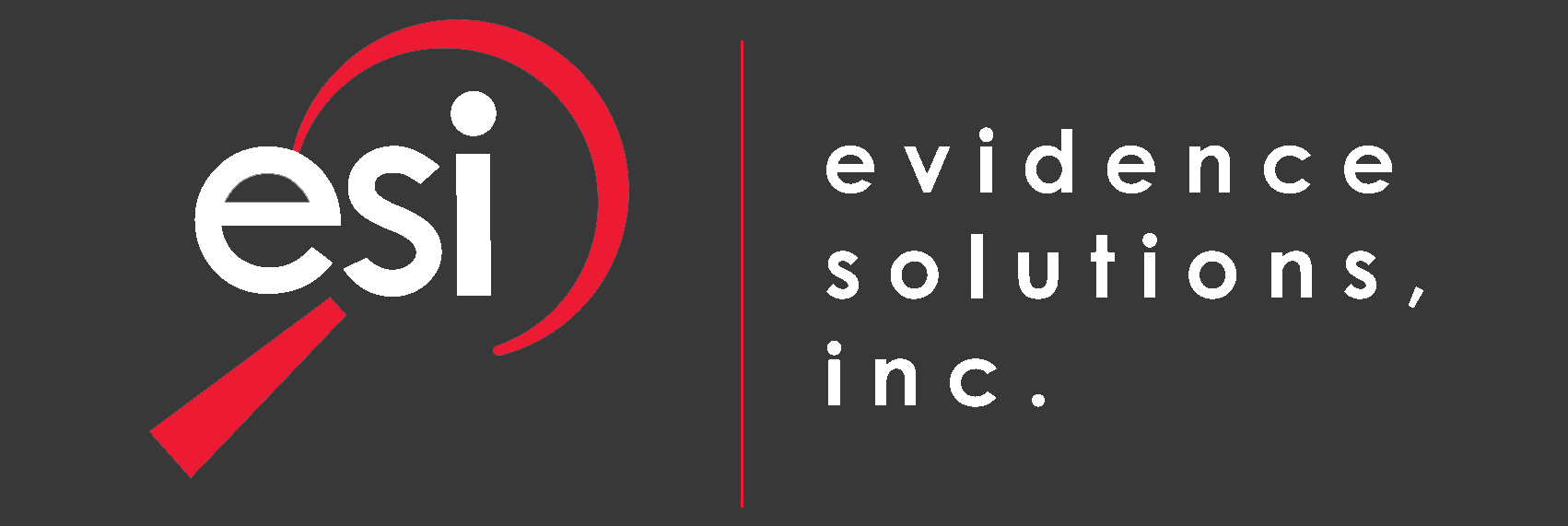California State Bar E-Discovery OpinionOn June 30th, 2015, California became the first state to require attorneys to be competent in Electronic Discovery (e-discovery). The requirement comes from California State Bar's (CSB) Standing Committee on Professional Responsibility and Conduct’s Formal Opinion 2015-193. |

E-Discovery Expert: E-Discovery Process
Definitions:
Electronic Discovery (or e-discovery or ediscovery) is defined in litigation or government investigations as the collection, preservation and exchange of Electronically Stored Information.
Electronically Stored Information (ESI) is information which is stored in technology having electrical, digital, magnetic, wireless, optical, electromagnetic, or similar capabilities. In short, ESI is information stored in some sort of technology.
The ABA's Competency Rule:
The American Bar Association’s (ABA) Model Rules of Professional Conduct Competence Rule 1.1: states: “A lawyer shall provide competent representation to a client. Competent representation requires the legal knowledge, skill, thoroughness and preparation reasonably necessary for the representation.”
E-Discovery is Everywhere:
It used to be attorneys considered e-discovery as a niche area of practice. Many attorneys steered clear of e-discovery. However, it is Evidence Solution’s Expert’s opinion almost all cases have some sort of ESI. ESI in a case can come from one or more of the following: computers, cell phones, black boxes in cars and trucks, infotainment systems in cars and trucks, electronic medical records, fax machines, copiers , digital cameras, accounting systems, GPS systems, email, point of sale systems, security systems and more.
California's Formal Opinion 2015-193
The California opinion sets a standard of competence which lawyers should have as it relates to e-discovery and ESI. It requires lawyers to be familiar with the technical aspects of e-discovery before they embark on using it in a case. The rule requires e-discovery to become an aspect of competent lawyering.
The opinion states if an attorney is not familiar with e-discovery, ESI or any technical issues related to these topics it is the attorney’s responsibility to consult an expert in these areas.
Digest from the E-Discovery opinion:
"An attorney’s obligations under the ethical duty of competence evolve as new technologies develop and become integrated with the practice of law. Attorney competence related to litigation generally requires, among other things, and at a minimum, a basic understanding of, and facility with, issues relating to e-discovery, including the discovery of electronically stored information (“ESI”). On a case-by-case basis, the duty of competence may require a higher level of technical knowledge and ability, depending on the e-discovery issues involved in a matter, and the nature of the ESI. Competency may require even a highly experienced attorney to seek assistance in some litigation matters involving ESI. An attorney lacking the required competence for e-discovery issues has three options: (1) acquire sufficient learning and skill before performance is required; (2) associate with or consult technical consultants or competent counsel; or (3) decline the client representation. Lack of competence in e-discovery issues also may lead to an ethical violation of an attorney’s duty of confidentiality."
More Detail About the E-Discovery Opinion:
The opinion describes specific aspects of e-discovery that attorneys should be able to handle, either alone or through association with competent and experienced firm like Evidence Solutions. They are:
- Implement/cause to implement appropriate preservation procedures for electronically stored information (ESI).
- Analyze and understand a client’s ESI systems and storage.
- Identify custodians of relevant ESI.
- Perform data searches.
- Collect responsive ESI in a manner that preserves the integrity of that ESI.
- Advise the client on available options for collection and preservation of ESI.
- Engage in competent and meaningful meet and confer with opposing counsel concerning an e-discovery plan.
- Produce responsive ESI in a recognized and appropriate manner.
Attorney's Are Learning!
I speak or lecture on computer forensics, cell phone forensics and other types of ESI several times a year. In my opinion attorneys who hear me speak are absorbing the information and are putting it to use in their cases. There are still a significant number of attorneys who lack a basic understanding of ESI and e-discovery. It is critical they gain some knowledge of these topics.*
Will This Sweep the United States?
It is likely other states will examine California's opinion and perhaps come up with similar ethical opinions. Virtually all attorneys, even those attorneys who do not litigate, should have a basic understanding of e-discovery. Almost all attorneys are involved one way or another in the creation and/or management of data which may become subject to discovery.

